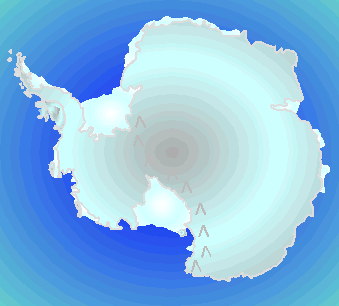





Hi! My name is Jerri-Lynn Hollyfield and I am from Birmingham, Alabama and have lived here all of my life. This is my tenth year as a Third Grade teacher at McElwain Elementary School. I love teaching Third Grade! I am also the Third Grade Level Lead and Mentor Teacher and was appointed by my superintendent to be a member of the National Council for Teaching America1s Future. I am fortunate to be able to teach children and adults. Why would a Third Grade teacher be interested in going to Antarctica? I have wanted to go to Antarctica since I studied the biography of Admiral Byrd when I was in the Third Grade! Children are naturally curious about the world we live in. In the Third Grade children are developmentally able to understand and comprehend so much for the first time in their lives. I want to stimulate their excitement, curiosity, and eagerness to learn in the areas of environmental science and geography. I get excited about my students learning new information, concepts, and relationships through inquiry, research-based experiences. As a lifelong learner myself, I want to motivate students and other teachers with whom I come into contact with. Through my inquiry and research, I will be able to encourage my students to become better at reasoning, problem-solving, applying knowledge, and writing. Everyone involved will be encouraged to perform at higher standards. I am anxious to step onto the remotest continent!
I love being around water! I spend as much time as possible around water. My apartment is only 10 feet from the swimming pool and I have a fountain inside that I keep running most of the time. I also love to travel to places that have water. At home, I enjoy singing, acting, and dancing.
What do I want my children to receive as a result of this experience? I want them to develop a sense of wonder and inquiry as the Antarctic environment acts as a teacher through my expedition. The use of technology will provide immediate feedback and information to the students in the classroom. The children's interests will help the experiences unfold. An integrated curriculum will emerge as inquiry, research investigations build a foundation to construct knowledge that they belong to the world and to build a sense of community through relationships with other children, teachers, parents, and the local community.
I would like to acknowledge adaptations of Kathie Stevens' biography. We must think along the same lines. Jerri-Lynn Hollyfield, July 23, 2001.

Chemical Ecology of Shallow Water Marine Macroalgae & Invertebrates on the Antarctic Peninsula
Dr. Charles Amsler and Dr. James McClintock (University of Alabama)
While in Antarctica, the team will be SCUBA diving to collect samples of benthic marine invertebrates and macroalgae. The samples will be analyzed in the lab for the highest levels of secondary metabolites in the outer layers. The team will also be conducting biochemical extractions, purifications, and chemical structural determinations.
Sea star predation is a significant factor in Antarctica. Sea stars in Antarctica do not feed by taking one bite at a time as they commonly feed elsewhere. They stick their stomachs out and digest the prey whole. The prediction is that sea star prey have vulnerable outer layers whereas sponges, in the same region, have developed higher levels of defense mechanisms in their outer layers and therefore, are able to grow quite large. Taking advantage of the unique importance of sea stars as predators in Antarctica, it is predicted that chemical defenses will be differentially sequestered in tissues that are most susceptible to predation.
Sessile marine plants and invertebrates grow attached to rocks, soil, and other objects therefore, they have to behaviorally adapt to defend themselves. One way to do this is to make themselves unappetizing to predators, whether by touch or making themselves taste bad to predators. The research team I am working with is going to concentrate on the mechanism an organism employs to be disagreeable. Organisms that use this method must create special chemicals within themselves causing them to focus their energy on this production and there is a cost to that production. The energy used to produce those chemicals takes away from the energy to grow and reproduce. Some organisms grow and reproduce rather than sustain defense mechanisms. We plan to study these trade-offs and understand why some organisms invest in defensive chemistry.
Antarctica provides us with a unique opportunity to study these relationships. First, these marine plants have a physical environment unlike any other on Earth which is plentiful in nutrients, parcticularly nitrogen, but has extreme seasonal daylight cycles. Due to these factors, growth, reproduction, and defense in marine plants and invertebrates is different in Antarctica.
The researchers will compare their current field season data to data previously collected at Palmer and McMurdo Stations. My primary responsibilities on the team will be dive tender and lab tech.




 Be sure to check out the images in the journal entries!
Be sure to check out the images in the journal entries!


